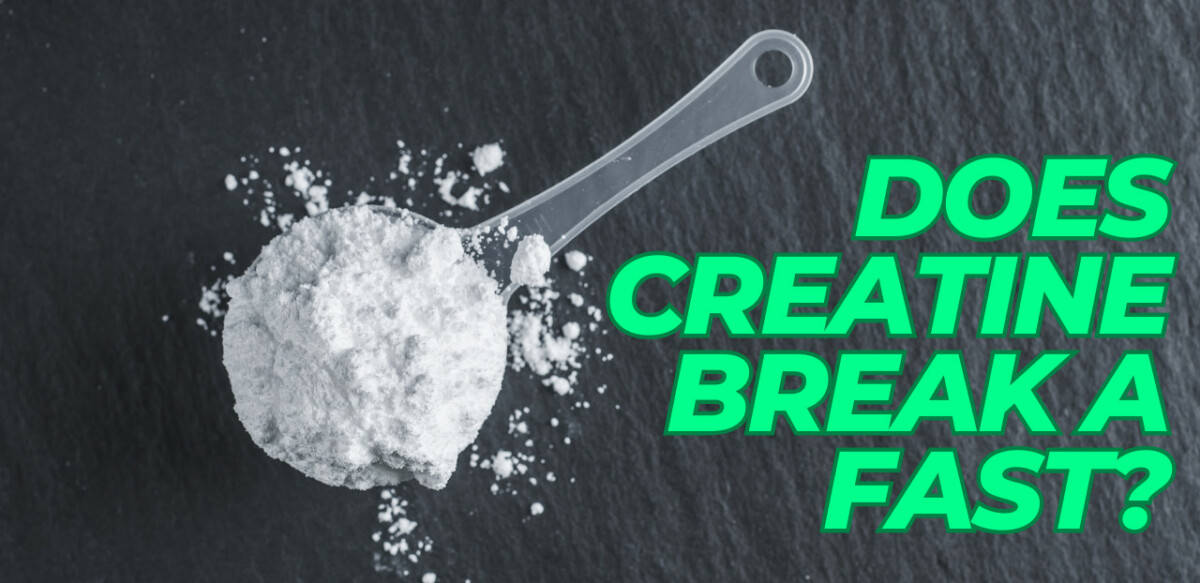So in the battle of krill oil vs fish oil which will be crowned the best omega-3 supplement?
The good news is both contain a strong serving of essential omega-3 fatty acids. Supplementing with omega-3 fatty acids has been found to provide numerous health benefits such as losing belly fat, reducing diabetes, lowering inflammation and improving brain health (1,2,3,4). Omega-3’s are essential fatty acids that you have to consume through your diet since your body can’t make them on its own.
The reason why you have to supplement with an omega-3 fish oil or krill oil in the first place is because of an out-of-balance omega-6 to omega-3 ratio (5). The modern diet contains way too many omega-6 fatty acids that leads to inflammation in the body (7). This oxidized fat from omega-6s and cholesterol can harden your blood vessels leading to heart disease (8). Vegetable oils, refined carbs, and processed foods are to blame.
An ideal omega-6 to omega-3 ratio is 1:1 but most people today have an astronomical high 16:1 ratio (9). Having too many of these omega-6’s will also cause fatty acids to compete for absorption in your body further reducing your omega-3 intake. But supplementing with an omega-3 krill oil or fish oil can help to rebalance this delicate ratio.
Studies have found those with low amounts of omega-3 fatty acids in their body were at higher risk for all-cause mortality (10).
But supplementing with omega-3 fatty acids has been found to reverse some of these skyrocketing Western chronic diseases and illnesses (11).
I’m sure you’ll agree it can be confusing whether to take krill oil or fish oil for your omega-3 fatty acids. But here I’ll show you the pros and cons of each with science-backed data so you can get the benefits of taking the best one.
The Benefits of Krill Oil & Fish Oil

When you consume a fish oil supplement you’re putting the extracted fat from a fatty fish into your body. Krill are very small shrimp-like crustaceans that feed off phytoplankton in the ocean. Contrary to popular belief krill are not bottom feeders. They swim around in the ocean and filter in tiny phytoplankton for food.
Both krill oil and fish oil contain omega-3 fatty acids in the form of beneficial EPA (eicosapentaenoic acid) and DHA (docosahexaenoic acid). Now taking either krill oil or fish oil is going to raise your EPA & DHA levels significantly. Some of the benefits studies have found from increasing EPA and DHA levels include:
- losing belly fat (without dieting) (12)
- lower inflammation
- stronger joint health (13)
- reduced all rate mortality
- slowing of the aging process (14)
- increased sperm count & testosterone (in men) (15)
- delayed brain aging (reverses alcohol degradation) (16)
- lowers triglyceride levels (17)
- increased attention & eliminates brain fog (18)
- improved heart health (lower blood pressure)
- reduced depression & anxiety (19)
In just one study over 6 weeks, participants taking omega-3 fatty acids lost 2 pounds of body fat without adding in dietary changes (20).
Now in an ideal world, you’d get all the omega-3’s you need from your diet by eating fish like sardines and wild salmon. But you’d have to eat a lot of fish and krill to get the same amount you’d get from supplementing with it.
Krill oil seems to get more hype than fish oil these days and for good reason. There is science behind why krill oil can be a better choice than fish oil for your omega-3 fatty acid supplement.
Krill Oil Benefits

One of the main benefits of taking krill oil over fish oil is it contains the astaxanthin. This is an antioxidant and amphipathic carotenoid that fights inflammation as it protects DHA from oxidizing (21,22). Astaxanthin isn’t present in fish oil and this one of the reasons fish oil is more likely to become oxidized and rancid.
Astaxanthin can protect DHA and other polyunsaturated fats with its ability to buildup in your cell membranes. Otherwise, DHA could quickly become oxidized. Astaxanthin has also been found to lower inflammation, improve skin health, decrease DNA damage, fight colon cancer, lessen PMS symptoms and even slow aging (23,24,25).
Another powerful benefit of taking krill oil is it is phosphorylated. This means the DHA in krill naturally contains phospholipids which help your body to more easily absorb the DHA (26). These phospholipids aid in the delivery of DHA across the blood-brain barrier and leads to better communication across your brain (27).
Krill oil typically contains 30% EPA & DHA along with about 40% phospholipids. Your phospholipid cell membrane directly uses DHA (28). So it makes sense to take phospholipid containing krill oil if you’re looking for the brain benefits of taking DHA. Your brain prefers to accept DHA from the same phospholipid rich form you’ll find in krill oil (29).
Krill oil also contains choline-rich phospholipids called DHA-lyse-phosphatidylcholine. This is your body’s preferred way to transport DHA into the brain. The ability to deliver DHA to your brain is important as your brain contains a high amount of DHA. A study found mice ended up getting 60% less DHA in their brains without the right transporters for DHA (30).
This is one reason why taking krill oil is thought to improve the symptoms of anxiety and depression. In one study those receiving krill oil over 3 months had significantly decreased depression (31). It’s thought these phospholipids are responsible for lowering these symptoms.
Side Effects of Krill Oil
Are there side effects with taking krill oil?
One of the biggest complaints I’ll hear from people taking krill oil supplements is that it’s more expensive than fish oil. Be wary of fish oils on the cheaper side as they might contain toxic ingredients or have become oxidized and rancid. Whatever krill oil or fish oil you’re going to buy make sure you find one that’s higher quality from a reputable manufacturer.
When you look at the back of a bottle of krill oil supplements or fish oil you’ll quickly see the former contains a lot less EPA & DHA than the latter. So why would you pay more for less omega-3s in krill oil supplements?
Your body will better absorb krill oil even though it does usually contain less EPA & DHA per serving than fish oil. The phospholipids attached to EPA & DHA in krill oil make it much more easily absorbed in your body than fish oil.
This is one of the reasons why krill oil capsules are a lot smaller than fish oils. So if you have a problem or don’t like to take the bigger fish oil pills then krill oil has the advantage here.
If you have concerns with the environment and sustainability of the ecosystem then taking krill oil supplements might not be for you. Krill is usually harvested from antarctic oceans and they are at the bottom of the food chain. It’s a vital part of the ocean ecosystem for marine life to consume krill oil supplements so maybe the mass harvesting of krill isn’t such a great idea.
If you’re allergic to shrimp or other seafood crustaceans then it’s a good idea to avoid krill oil or at least talk to your doctor before taking it.
Fish Oil Benefits & Cons

Now even though I just praised the benefits of taking krill oil it doesn’t mean fish oil should be completely avoided. You still get much of the same health benefits from taking fish oil as you would krill oil. It’s always better to take one or the other than none at all.
Fish oil comes from oily fish and does contain a higher amount of EPA & DHA per serving and you’ll usually find it at a lower price. Although you should be aware that much of the lesser quality fish oils can easily become rancid and oxidized.
The processing of fish itself to extract the omega-3’s can oxidize the product before it even reaches store shelves (32). This can spoil the fish oil and you’ll be wasting your time and money taking it. One of the reasons fish oil can become oxidized more easily than krill oil is it contains polyunsaturated fatty acids (33). The molecular structure in these kinds of oils (double carbon bonds) are less stable.
One of the advantages of taking krill oil is that it’s better absorbed by your body since it contains phospholipids. But a study found if you take fish oil with saturated fats you can increase absorption into your red blood cell membranes (33). Studies have found low omega-3 levels in red blood cells resulted in lower performance-based test scores (34).
Many people do complain about the dreaded “fish burps” that can come with taking fish oil supplements. But much of this bad fishy taste can be avoided by putting your fish oil in the fridge and taking it right before eating a meal.
Independent analysis studies have found many of the fish oils you can find in stores contains less DHA than advertised on the label (35). It’s possible that the fatty fish used to make fish oil can contain high amounts of toxic metals like mercury and other environmental pollutants. But I have yet to see studies finding high enough levels in common fish oil supplements to cause concern. The distillation process of EPA & DHA removes many of these toxic pollutants like mercury.
Krill Oil or Fish Oil: The Winner!

At the end of the day, krill oil is the ultimate winner when it comes to the best omega-3 supplements.
It contains the powerful antioxidant astaxanthin and phospholipids that increase the absorption of DHA. Plus krill oil won’t cause “fish burps” and they come in a smaller more easily swallowed sized pill than much bigger fish oil capsules.
Most of these tests typically use a dosage of krill oil that’s 1-2g per day but I typically take 2-4g per day. This is the best krill oil and the same one I take.
One thing to be aware of is you can take too much omega-3 fatty acids. It can amplify the effects of blood thinning medications. It’s a good idea to seek medical advice when dealing with your heart health and blood pressure.
Now I take krill oil most of the time but I’ll also mix it up and take some fish oil too. Ideally, you could take both krill oil and fish oil together but this might be too expensive for most people.
Pure & Potent Omega-3 Supplement
- Each serving is packed with 1040mg of DHA providing support for brain, heart, eye, joint & immune health
- Omega-3 fatty acids provided in natural triglyceride form for maximal absorption
- 3mg of AstaREAL Astaxanthin - one of nature's most powerful antioxidants
- Premium, pure & potent omega-3 fatty acids from wild, cold-water sources… no fish burps!
Can flaxseed oil replace krill oil or fish oil?
I’d recommend taking krill oil or fish oil over flaxseed oil for your main source of omega-3’s. This is because the omega-3’s in flaxseed oil are in the form of ALA (alpha-linolenic acid). Your body then has to convert ALA to both EPA and DHA. But your body can only efficiently convert 8-21% of ALA into EPA and DHA (36). But a study found you can boost your body’s conversion rate by taking flaxseed oil with curcumin (37). If you’re vegan then taking flaxseed oil will be better than nothing to help achieve adequate EPA & DHA levels.
The Last Word
At the end of the day, you’re going to get more benefits from taking krill oil over fish oil even though it might be more expensive. Now krill oil might have one the battle of krill oil or fish oil for the best omega 3 supplement but both earn a gold medal in my book.
Taking either krill oil or fish oil can help to significantly improve your health from everything to cholesterol to blood pressure to arthritis and a less risk of cardiovascular disease.
If you’re strapped for cash then I wouldn’t shake my head at anybody taking fish oil. Just make sure you find one that’s higher quality like this one so you’re not throwing your money away on oxidized and rancid fish oils.
I’d highly recommend adding krill oil supplementation to your daily health regime so you can start reaping all of the health benefits that science has found it can give you.
Josh holds a Bachelor’s degree in Exercise Physiology and Nutrition Science. He’s a Certified Strength and Conditioning Specialist (CSCS) by the National Strength and Conditioning Association and he’s a Certified Personal Trainer (CPT) by American Council on Exercise. He’s worked as a Strength and Conditioning Coach at the high school and college levels. He has over 15 years of experience as a personal trainer and nutrition coach. He strives to bring inspiration and results for people to live healthier lives through smart diet and exercise.










